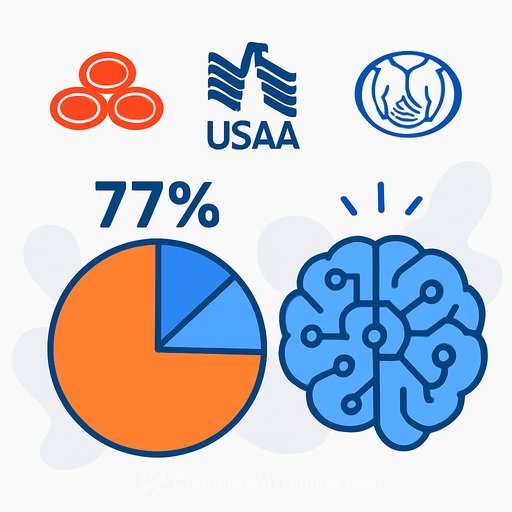AI’s Growing Role in Insurance: Why Affirmative Cover Matters
Artificial intelligence is becoming a major factor across multiple industries, including insurance. As AI tools and applications continue to advance, insurance policies need to keep pace by clearly defining what is and isn’t covered. This was a central focus at a recent insurance industry event, where experts emphasized the need for policy wordings to adapt alongside technology.
A 2024 survey by the Bank of England and FCA revealed that 75% of financial services firms are already using AI, with another 10% planning to adopt it within three years. As AI usage expands, the insurance sector faces the challenge of ensuring its policies address AI-related risks clearly and effectively.
What is Affirmative Cover?
Affirmative cover explicitly states that a particular risk or peril is included in an insurance policy. This contrasts with silent coverage, where risks are not specifically mentioned but might still be covered under general terms. With AI’s growing presence, explicitly including AI in policy wording has become critical.
Jason Cohen from Hamilton Leigh points out the value of being explicit: clients want to know exactly where coverage applies. This clarity reduces uncertainty and helps brokers communicate coverage confidently. Elaine Lamb from Partners& highlights that many firms outside the tech sector may not fully understand AI’s implications, so clear policy language is especially helpful for those clients.
Determining AI Coverage Options
The insurance industry is still developing the frameworks for AI coverage. Because AI technology and its risks are relatively new, there isn’t an extensive claims history to guide policy design. Thomas Lowin of Hiscox notes that, so far, there haven’t been claims related to AI failures or data poisoning in their AI-specific professional indemnity products.
As AI matures and more claims data becomes available, insurers will be better positioned to refine coverage options and pricing. This process is somewhat similar to how the cyber insurance market has evolved with increasing incident data.
Why Explicit AI Coverage Matters
When AI-related claims arise, clear policy wording becomes essential. Jonny Garrett from Brown and Brown explains that loss adjusters often interpret policy language when assessing claims. If AI risks are not explicitly covered, claims may be denied based on wording ambiguities.
Affirmative cover removes this uncertainty by specifying AI-related risks upfront. This gives clients confidence that their AI activities are protected, enabling innovation without fear of coverage gaps.
Practical Takeaways for Insurance Professionals
- Review existing policies to identify whether AI risks are explicitly included or excluded.
- Work with underwriters and brokers to develop clear affirmative cover language for AI-related risks.
- Educate clients, especially those less familiar with AI, about what their policies cover regarding AI use.
- Monitor AI developments and claims trends to adjust coverage terms as needed.
For insurance professionals seeking to build expertise in AI and its implications, resources like Complete AI Training offer relevant courses and insights tailored to various skill levels and job roles.
As AI continues to advance, clear and specific policy wordings will be key to ensuring that insurance keeps pace with technology, protecting both insurers and their clients effectively.
Your membership also unlocks:






